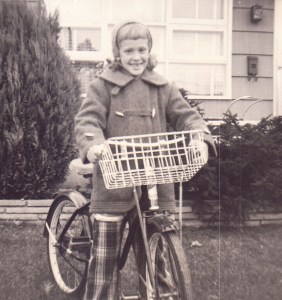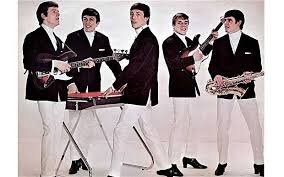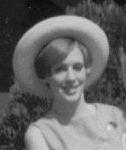The first time I heard “Hey, Buzzard!” I was 12, and I knew he was talking to me. With a small crowd around him, Walter began flapping his arms wildly in the air, and making loud “caw, caw, caw” sounds. His friends were already laughing and didn’t need an explanation, but they got one anyway: “I call her that because she’s so ugly and her nose is so big,” he told them as they moved down the street.
My nose was way ahead of the rest of my face. In fact, my whole body was just one big adolescent disappointment that summer. My hair had the consistency of steel wool and would puff out like a blow fish as soon as the humidity raised half a percent. I was taller than anyone on my block (including a few short adults). I kept forgetting about my feet. I tripped a lot.
Puberty had not come gunning for Walter the way it had for me. He was athletic and blonde, with perfect symmetry to his face. As the kingpin of our neighborhood, whatever he said garnered plenty of nods and laughs. My humiliation — always close to the surface — didn’t faze him. Just the opposite. The few times I cried only fueled him. Twice he spit at me but missed.
I found no “safe spaces” during those summers. Unless it rained, kids played outside all day, and the hand you were dealt was a three-block radius of your house, maybe a total of 50 kids.
At dinner, my parents might say, “So, what did you do today?” but they never wanted to hear the details. There was an unwritten manifesto of all the Massapequa parents I knew: They’d had the foresight to buy a home on bucolic Long Island, a far cry from the mean streets of Manhattan or Queens where they’d come of age. They got points for providing you with trees, good schools, and fresh air. The rest was up to you. You were supposed to have fun in the summer. It was your only job.
As a child, my mother had watched her family struggle through the Great Depression. She was replete with stories about oatmeal. When my grandmother could afford to make some extra in the big pot on top of the stove, she would have my mother take it to the family who lived above them, a trip my mother dreaded. When the woman opened the door, her face would fall and she would sigh. She took it because her kids were hungry, but she couldn’t bring herself to say “Thank you.” Oatmeal was charity and people who worked so hard didn’t take charity.
My mother fought dark feelings most of her life that all our security would be whisked away. Walter meant nothing to her when — at any moment now — oatmeal might return as a staple.
My father spent most of his childhood in Maine. When his mother died after his third birthday, his father moved away to find work. My father was shuffled among kindly relatives who fed him as long as they could. Theirs was a small enclave of French mill workers who did not speak English. And then when my father was 11, he was sent to the Lower East Side of Manhattan to live with his father, a man he barely knew and a man who refused to speak to my father in French. New father, new city, new language all in one moment. Walter? Don’t be ridiculous.
My parents listened to me, but their usual response — changing the subject — told me that they couldn’t relate. Their message was loving and practical and always the same, but it infuriated me in its simplicity: “Sometimes life is hard. Be a good person. Figure it out.”
A few years ago I was at a funeral back in Massapequa when I saw Walter walk in. He was easy to spot in the crowded room — still handsome, his blonde hair now gray. I’d been privy to what he’d been doing all these years. He has struggled — in a bunch of arenas — maybe the reason he was such a mean kid. He is still not known for kindness in any form. (Sometimes life is hard.)
Watching him, I felt a little vindicated as if someone had been keeping score all this time, and it had just been announced in this room at the funeral home that my totals soared over Walter’s. I realized, though, that I didn’t need to be the winner. And what I was feeling at that moment was a bit of compassion I didn’t see coming. (Be a good person.)
I caught his eye and smiled. He recognized me, and we made small talk about the old neighborhood. If I thought for a moment he remembered his treatment of me when we were kids, I might have brought it up, just to see what his memories were. But it was clear he just wanted to tell me about his business, his kids who play lacrosse, his new car, and his new wife. And maybe it was during that conversation — as my mind wandered — that I finally completed my parents’ advice from so long ago (Figure it out.) Because I remembered that at 12 I didn’t want to treat people the way Walter did. I didn’t want to end up like him.
And I didn’t.





